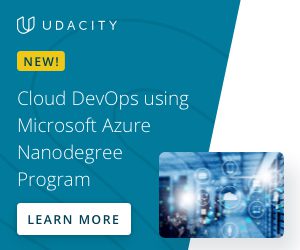The 5 Best Kubernetes Udacity Nanodegrees for IT Professionals in 2025

With this in mind, the editors at Solutions Review have compiled this list of the best Kubernetes Udacity Nanodegrees for IT professionals. Udacity is perfect for those looking to take multiple courses or acquire skills in multiple different areas, or for those who want the most in-depth experience possible through access to entire course libraries or learning paths. In sum, Udacity is home to more than 160,000 students in more than 190 countries. Note: Udacity Nanodegrees are listed in no particular order.
 Kubernetes is an open-source container-orchestration system for automation computer application scaling, management, and deployment. One of the main advantages of using Kubernetes in an environment, especially if users are optimizing app development for the cloud, is that it enables users to schedule and run containers on clusters of physical or virtual machines (VMs). These clusters can span hosts across on-prem, public, private, or hybrid clouds, making Kubernetes ideal for hosting cloud-native applications that require rapid scaling. Additionally, Kubernetes helps users fully implement and rely on a container-based infrastructure in production environments.
Kubernetes is an open-source container-orchestration system for automation computer application scaling, management, and deployment. One of the main advantages of using Kubernetes in an environment, especially if users are optimizing app development for the cloud, is that it enables users to schedule and run containers on clusters of physical or virtual machines (VMs). These clusters can span hosts across on-prem, public, private, or hybrid clouds, making Kubernetes ideal for hosting cloud-native applications that require rapid scaling. Additionally, Kubernetes helps users fully implement and rely on a container-based infrastructure in production environments.
The Best Kubernetes Udacity Nanodegrees for IT Professionals
TITLE: Become a Cloud Developer
OUR TAKE: For cloud users who want to learn about developing and deploying applications on AWS, this is the course for you. Topics like Kubernetes, serverless apps, and microservices are also covered here.
Description: Start by learning the fundamentals of cloud development and deployment with AWS. Then, build different apps leveraging microservices, Kubernetes clusters, and serverless application technology. You should have intermediate knowledge of Javascript, and familiarity with object-oriented programming, web development with HTML and CSS, and the Linux Command Line.
TITLE: Become a Cloud DevOps Engineer
OUR TAKE: As DevOps goes hand in hand with developing applications in the cloud, this is an essential course for AppDev professionals to gain the knowledge of a cloud DevOps engineer within four months.
Description: Learn to design and deploy infrastructure as code, build and monitor CI/CD pipelines for different deployment strategies, and deploy scalable microservices using Kubernetes. At the end of the program, you’ll combine your new skills by completing a capstone project. Learn the fundamentals of cloud computing while being introduced to compute power, security, storage, networking, messaging, and management services in the cloud.
TITLE: Cloud-Native Application Architecture
OUR TAKE: Deploying applications natively on the cloud comes with its own set of challenges and specifications. Cloud-native application architects are in high demand now, so this course should be considered for anyone looking to enter the field.
Description: You’ll master the skills necessary to become a successful cloud-native architect. Learn to run and manage scalable applications in a cloud-native environment, using open-source tools and projects like ArgoCD, gRPC, and Grafana. Throughout this course, students will learn how to structure, package, and release an application to a Kubernetes cluster, while using an automated CI/CD pipeline.
TITLE: Full Stack Web Developer
OUR TAKE: Before taking this course, it is recommended that students have experience writing and testing software with Python or other object-oriented programming languages. Over four months, students will learn about server deployment, containerization, and how to deploy a flask app to Kubernetes.
Description: The goal of the Full Stack Web Developer Nanodegree program is to equip learners with the unique skills they need to build database-backed APIs and web applications. A graduate of this program will be able to design and build databases for software applications, create and deploy database-backed web APIs, and secure and manage user authentication and access control for an application backend. Students will also learn how to deploy a Flask-based web application to the cloud using Docker and Kubernetes.
TITLE: Scalable Microservices with Kubernetes
OUR TAKE: In this free, intermediate-level course, students will learn how to containerize an application with Docker config files, use Kubernetes to manage to deploy and update applications, and configure an auto-scaling Kubernetes cluster. Additionally, students can employ best practices for using containers generally.
Description: This course is designed to teach you about managing application containers, using Kubernetes. We’ve built this course in partnership with experts such as Kelsey Hightower and Carter Morgan from Google and Netflix’s former Cloud Architect, Adrian Cockcroft (current Technology Fellow at Battery Ventures), who provide critical learning throughout the course.
Solutions Review participates in affiliate programs. We may make a small commission from products purchased through this resource.
Looking for a managed service provider for your cloud solutions? Our MSP Buyer’s Guide contains profiles on the top cloud managed service providers for AWS, Azure, and Google Cloud, as well as questions you should ask vendors and yourself before buying. We also offer an MSP Vendor Map that outlines those vendors in a Venn diagram to make it easy for you to select potential providers.
Check us out on Twitter for the latest in Enterprise Cloud news and developments!























